Can we improve heat tolerance in rice? An interview with Dr Jordan Robson
November 29, 2022
Jordan Robson works on heat tolerance in rice populations. She is a Postdoctoral Research Fellow with the Palaeobenchmarking Resilient Agricultural Systems project. Prior to this she completed her PhD in Prof Zoe Wilson’s lab in Plant Sciences at UoN. Tell me about your work. What is your research about? My research is based on …
Future Food PhD wins prestigious Carlos Fuentes award
September 21, 2022
Karla G. Hernandez-Aguilar, a PhD candidate with the Palaeobenchmarking Resistant Agricultural Systems project, has been awarded a Carlos Fuentes award by the Mexican Society of the UK for her PhD research. Karla’s PhD project is titled: Understanding microenvironments and the potential of traditional agricultural systems in a changing climate in Mexico and Belize. Her interdisciplinary …
Our technology platforms: AEDNA
August 8, 2022
Over the next few weeks we will be featuring stories about our different technology platforms, their work and research, and the facilities available to researchers. These are also featured in our 2021 Annual Report. Today, we turn our attention to our new Ancient and Environmental DNA laboratory. We are very pleased that our Ancient and …
Humanity’s impact on earth – An interview with Matt Jones
November 20, 2020
Professor Matthew Jones is leading the Palaeobenchmarking Resilient Agricultural Systems (PalaeoRAS) project. He is based in the School of Geography. Tell me about your work. What do you study? I’m a Quaternary Scientist, a geologist with a particular interest in the last 2.5 million years of Earth’s history (the Quaternary Period). My own work focusses on the last 20,000 years, the time period since …
Screening heat tolerance in rice plants – An interview with John Ferguson
November 17, 2020
Photo by marianne bos on Unsplash John Ferguson is a postdoctoral research fellow on the Palaeobenchmarking Resilient Agricultural Systems (PalaeoRAS) project Tell me about your work. What do you study? I am plant ecophysiologist. I perform experiments to understand how plants respond to environment stress. We use the results from these experiments to link variation in the plant’s responses to genetic variation. This …
Reconstructing the ecosystems of the past – An interview with Annegreet Veeken
November 12, 2020
Annegreet Veeken is a PhD student on the Palaeobenchmarking Resilient Agricultural Systems (PalaeoRAS) project Why did you decide to do a PhD? What were you doing before? I had a year between ending my masters and starting my PhD. During that year, I worked part-time at a Dutch environmental NGO as a project assistant in water quality and …
How do plant roots respond to higher temperatures? – An interview with Aneesh Lale
November 9, 2020
Aneesh Lale is a PhD student on the Palaeobenchmarking Resilient Agricultural Systems (PalaeoRAS) project Why did you decide to do a PhD? What were you doing before? My father, having never found the time to complete his post-graduation, always encouraged me to learn as much as possible. My inquisitive nature, in addition to ample support from my parents, made a PhD …
Modelling ancient Mayan farming – An interview with Rik Rutjens
November 5, 2020
Rik Rutjens is a PhD candidate with the Palaeobenchmarking Resilient Agricultural Systems (PalaeoRAS) project. Photo (right) by Karla Hernandez-Aguilar Why did you decide to do a PhD? What were you doing before? After completing my undergraduate and masters degrees at Eindhoven University of Technology in the Netherlands, I could not decide which path to take for my future: research or industry? Eventually, a research internship at San Diego …
Computer Vision and plants – An interview with Bowen Deng
November 2, 2020
Bowen Deng is a PhD student on the Palaeobenchmarking Resilient Agricultural Systems (PalaeoRAS) project Why did you decide to do a PhD? What were you doing before? All my life, I have had a fascination with computing and technology. I have always enjoyed keeping pace with the latest advances in technology and have remained amazed at the speed of computerized developments over …
Droughts and their effects on agriculture – An interview with Amit Kumar
October 23, 2020
Amit Kumar is a PhD student on the Palaeobenchmarking Resilient Agricultural Systems (PalaeoRAS) project Why did you decide to do a PhD? What were you doing before? Before coming to the UK, I worked for the National Institute of Hydrology (NIH) in Roorkee (India) as a Senior Research Fellow for two years. NIH is a leading research institute working under the Ministry of Water Resources, Govt. of India. Earlier, I had completed my Masters in …

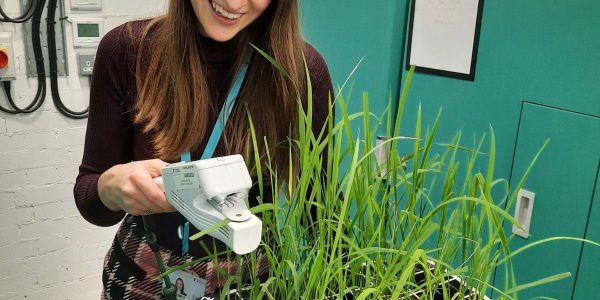

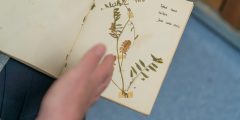
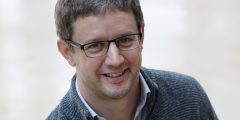
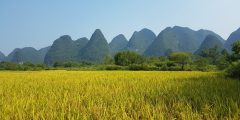

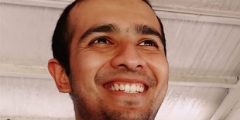
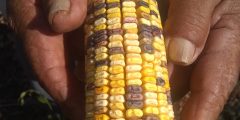


Recent Comments